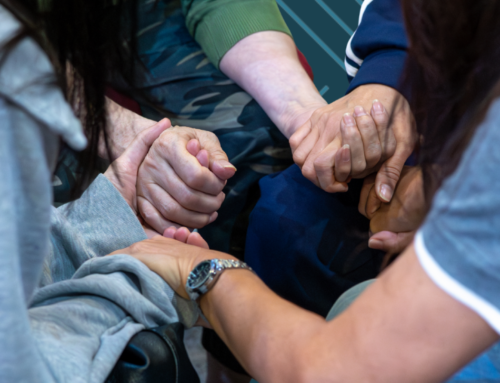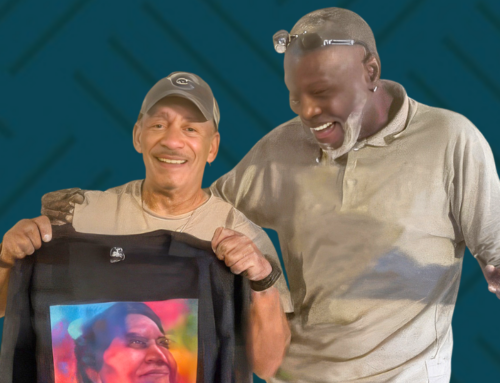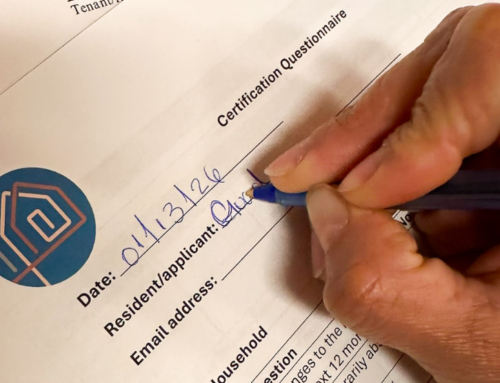
“I thought it would be impossible,” says Mary Margaret Hagen, Counseling Coordinator for Joshua Station. “How could play therapy even happen without being present with my client?”
During the pandemic, that’s exactly what she’s been doing with children who have experienced trauma. “I’ve really been surprised at how well it can work!” Immediately after Joshua Station implemented quarantine precautions, Mary Margaret jumped into her own online learning curve with best practices for remote play therapy. For each session, she arranges for the child to set up a device for video chat – their parent’s phone for instance – so that they can see each other with toys and games available. Seeing each other is very important.
“It’s really ALL about attunement – awareness of what is actually going on internally and externally in the present moment. We can both verbalize what we are noticing, and I can offer reflective observations from my attunement to body language, voice, the energy of the play, and the feelings that are arising.” The play may involve stuffed animals, action figures, coloring, or games such as I Spy, Two Truths and a Lie, Hangman, or Pictionary.

“We might be noticing how our bodies feel, and what we are feeling in our emotions. We can even go outside and run around like crazy. Or go on a scavenger hunt! We might be looking for something blue and fuzzy, or something that helps us feel better when we’re sad.
Mary Margaret even envisions remote therapy’s usefulness after coronavirus restrictions are eased. Some of her work involves former Joshua Station residents for whom transportation issues result in cancelled sessions. Last week Mary Margaret met with a ten-year-old boy who had a relative pass away from COVID-19. The family was in distress, but the boy was able to use the toys in his room to show her how he was experiencing his grief. Mary Margaret was so thankful that she was able to connect with him meaningfully even if it was through a screen.
“I do struggle with the disparities of experience in the pandemic between those with resources and those without,” Mary Margaret observes. She has clients in her private practice – children who typically have personal living space as well as their own personal phone, tablet, or computer. They have reliable internet for learning, therapy, and social connection. Joshua Station internet is spotty for residents, and devices are shared. “Lots of freeze-ups, disconnections, and interruptions… ugh!” Remote therapy definitely has its limitations, and Mary Margaret will be happy to be in Joshua Station’s play therapy rooms again.

Mary Margaret supervises and coordinates other Joshua Station counselors, and she’s found that it’s easy to stay connected with them by having virtual supervision sessions and meetings. But, due to the uncertainty and anxiety that we’re all living through, other aspects of her work and life are very hard right now. “I need to make sure I’m caring for myself while I’m also caring for others.
Thankfully, working from home allows me to be more intentional about taking breaks and noticing my own body’s responses, and what’s going on internally. ‘What do I need in this present moment?’ is a question I stop and ask throughout the day. I’m trying to be more mindful of my sleep patterns, my energy level, and how my body is responding to stress. I practice breathing and moving my body often!”
Every member of the Mile High Ministries team is adapting in order to “build people and communities.” Mary Margaret is offering her gifts of healing in new ways, so that our Joshua Station families can continue stepping ahead.
If you’d like to know more about Mary Margaret’s private practice, you can find her at www.playfulpathscounseling.com.






